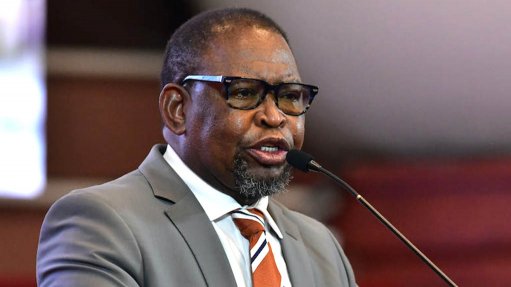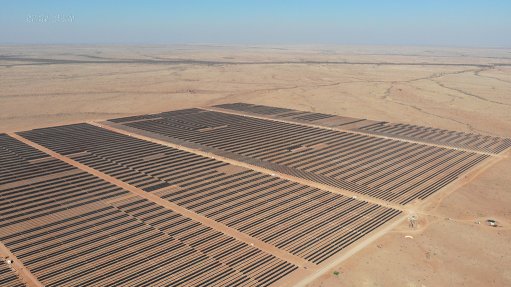Tshwane rapid transit system, South Africa
Name and Location
Tshwane rapid transit (TRT) system, Gauteng, South Africa.
Client
City of Tshwane.
Project Description
The Tshwane bus rapid transit system forms part of the City of Tshwane’s revitalisation project.
The 56 km of trunk route, featuring BRT buses in dedicated lanes stopping at dedicated stations, will run from Wonderboom to Menlyn, with passengers delivered to trunk route stations using complementary or feeder routes.
The entire BRT system will link Kopanong, in the north-west of Tshwane, to Denneboom, in the north-east, following a u-shaped route and traversing the inner city.
The project will be completed in two phases.
The 7 km, Phase 1A leg of the BRT system will run from the inner city to Hatfield.
It is expected that Phase 1A of the system will ramp up to transporting 7 800 passengers a day, with the final system running at 136 000 passenger trips a day in 2018.
Phase 1B will run from Hatfield to Menlyn and Phase 1C from the central business district (CBD) to Rainbow Junction.
The Tshwane BRT comprises 18 m articulated buses carrying 90 people each and 12 m buses carrying 60 people each.
An estimated 154 buses will be procured for the system and will comply with the latest European emission standards. This is part of the city’s commitment to reduce carbon emissions, while driving sustainability.
The low-floor buses allow ease of access to children, the elderly and people with disabilities.
The plan is to establish a private bus-operating company, which will operate the BRT system and also own the buses.
The City of Tshwane has chosen two designs for the stations.
Memory Box concept stations will be located in the city on Paul Kruger street. They will include imagery and information on the historic buildings surrounding them.
The Retro-Tram design will be used for the stations located outside the CBD. The concept is intended to evoke the imagery of the city’s historical tram lines, realised in a modern style.
Payment on the BRT system will be by smartcard and should be compatible with other public-transport smartcard systems.
Value
The City of Tshwane has secured R2.5-billion in funding from national government over the next three years.
Duration
Phase 1A will open in April 2014.
Phase 1B will open in June 2015.
The entire BRT system, as it is currently planned, will start operations in June 2016.
Latest Developments
The Tshwane Metro has unveiled the name of the TRT – A Re Yeng, or Let’s Go. The name was selected following a public participation process.
Speaking at the newly constructed Hatfield station, situated adjacent to the Gautrain station, mayor Kgosientso Ramokgopa said the city had kept to the deadlines it had set itself.
The Hatfield station, based on the Retro Tram concept, will be used for the stations based outside the CBD. The style is evocative of the city’s old tramlines, but with a contemporary design.
Stations will be located in the middle of the road, between driving lanes, similar to Johannesburg’s rapid transit Rea Vaya system, eliminating the need for a bus station on either side of the road.
A total of 51 stations will be built, from Kopanong, in Soshanguve, to Mamelodi, along 80 km of road.
City of Tshwane strategic executive director transport Lungile Madlala says the TRT system’s inception phase will be operational by April 2014.
The inception phase will run from Nana Sita street, past University road to the suburbs of Arcadia and Hatfield, looping back to University road.
This will be followed by the simultaneous construction of Lines 1 and 2. Line 1 will run from the CBD to Rainbow Junction, proceed to Kopanong, with Line 2 to split from the inception phase at Jorissen street, moving into Lynnwood road, the Atterbury area and to Mamelodi.
The entire system is expected to be in operation by 2016 or 2017.
The city has already spent about R330-million of its TRT budget.
The project is expected to employ 11 000 people at the height of construction.
The tender to procure the 154 buses required for the entire system, to be delivered in tranches, will be issued in April, says Ramokgopa. The new tender process will result in the newly formed bus operating company acquiring the buses and not the City of Tshwane, a matter that had to be corrected by scrapping the previous tender process.
The low-floor entry vehicles will differ from Johannesburg’s raised-floor entry buses. A raised-floor bus is only able to pick up commuters from elevated bus stations.
The choice of low-floor buses is not necessarily a popular one, but it will allow the buses to merge with and operate in existing city traffic.
Madlala has emphasised that Tshwane’s existing metropolitan bus service will not be replaced by A Re Yeng, noting that a recapitalised, but rationalised bus fleet will still operate in the city on routes not covered by the TRT system.
The City of Tshwane is procuring 120 buses for the general fleet.
Key Contracts and Suppliers
None stated.
On Budget and on Time?
The project is on time.
Contact Details for Project Information
City of Tshwane transport department: Integrated rapid public transport specialised unit, tel +27 12 358 2244, fax +27 12 358 7731 or email lungilem@tshwane.gov.za.
Comments
Announcements
What's On
Subscribe to improve your user experience...
Option 1 (equivalent of R125 a month):
Receive a weekly copy of Creamer Media's Engineering News & Mining Weekly magazine
(print copy for those in South Africa and e-magazine for those outside of South Africa)
Receive daily email newsletters
Access to full search results
Access archive of magazine back copies
Access to Projects in Progress
Access to ONE Research Report of your choice in PDF format
Option 2 (equivalent of R375 a month):
All benefits from Option 1
PLUS
Access to Creamer Media's Research Channel Africa for ALL Research Reports, in PDF format, on various industrial and mining sectors
including Electricity; Water; Energy Transition; Hydrogen; Roads, Rail and Ports; Coal; Gold; Platinum; Battery Metals; etc.
Already a subscriber?
Forgotten your password?
Receive weekly copy of Creamer Media's Engineering News & Mining Weekly magazine (print copy for those in South Africa and e-magazine for those outside of South Africa)
➕
Recieve daily email newsletters
➕
Access to full search results
➕
Access archive of magazine back copies
➕
Access to Projects in Progress
➕
Access to ONE Research Report of your choice in PDF format
RESEARCH CHANNEL AFRICA
R4500 (equivalent of R375 a month)
SUBSCRIBEAll benefits from Option 1
➕
Access to Creamer Media's Research Channel Africa for ALL Research Reports on various industrial and mining sectors, in PDF format, including on:
Electricity
➕
Water
➕
Energy Transition
➕
Hydrogen
➕
Roads, Rail and Ports
➕
Coal
➕
Gold
➕
Platinum
➕
Battery Metals
➕
etc.
Receive all benefits from Option 1 or Option 2 delivered to numerous people at your company
➕
Multiple User names and Passwords for simultaneous log-ins
➕
Intranet integration access to all in your organisation


















